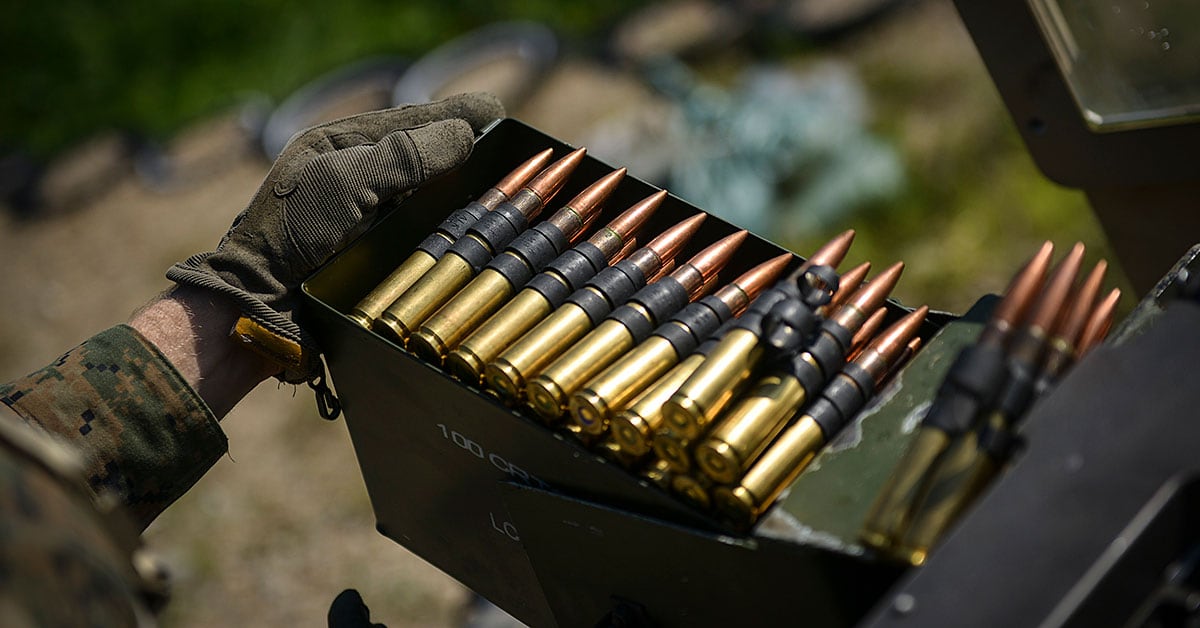Marines at infantry schools, machine gunner courses and certain amphibious battalions will soon be lugging a lighter load as they test new polymer case .50 caliber ammunition.
The Marine Corps has taken the lead to lighten the load of the heavy ammo, its linkages and containers.
Brig. Gen. A.J. Pasagian, head of Marine Corps Systems Command, told reporters in an overview of recent and ongoing infantry gear updates that the combined changes that have been made so far have reduced the weight of an ammo can of .50 caliber by a quarter.
“Our work in polymer with .50 caliber weapons I think is incredibly optimistic and promising,” Pasagian said Thursday.
The command is on target to complete user evaluations this year and aiming to offer the new round configuration to the other services as early as 2022.
RELATED

Both Marine Corps Schools of Infantry will use the ammo as they continue evaluations as will the Advanced Machine Gunners Course and 1st and 2nd Amphibious Assault Battalions.
Command officials also will be working with additional units in both I and II Marine Expeditionary Force on static and maneuver ranges as part of the evaluation.
The effort uses polymer to replace brass for the cartridge case and metal storage cans and nylon to replace the metal linkages that connect cartridges in linked ammunition.
The Corps launched a request in 2018 to reduce the weight by as much as a third.
A belt of 100 lightweight .50-caliber cartridges with 101 links needed to shave 15 to 30 percent, or more than 20 pounds, to qualify for the original request for information from industry that Marines published at the time.
But those pounds add up, the one-star noted that weight savings on a pallet of .50 caliber ammunition in the new configuration contributed to strategic advantages in fuel savings and mobility.
In 2019, the service announced that MAC LLC, a company out of Bay Saint Louis, Mississippi, would be the likely sole source contract for the project, producing an estimated 2.4 million cartridges in three years.
The company was awarded the $10 million contract in 2020.
The Marine Corps authorized the use of polymer magazines for the M27 Infantry Automatic Rifle in recent years.
The Army is considering a polymer-cased ammunition rifle and automatic rifle design for their Next Generation Squad Weapon, set to replace bot the M4 and the M249 Squad Automatic Weapon.
In other weapons news, Pasagian said the Corps has reached “pure fleet” status for the fielding of the M27 Infantry Automatic Rifle for all infantry units and attached scouts and combat engineers.
They’re also near full fielding to grunts on suppressors for those new rifles.
Todd South has written about crime, courts, government and the military for multiple publications since 2004 and was named a 2014 Pulitzer finalist for a co-written project on witness intimidation. Todd is a Marine veteran of the Iraq War.




